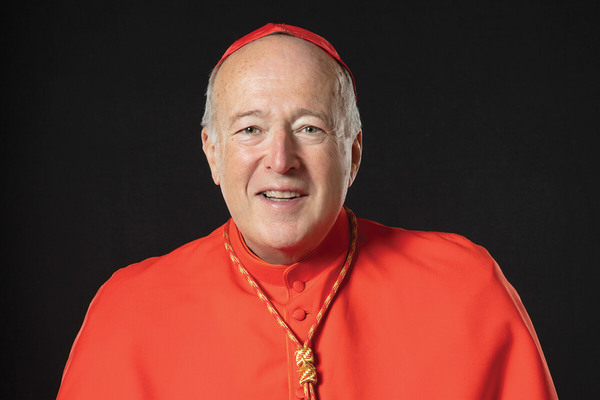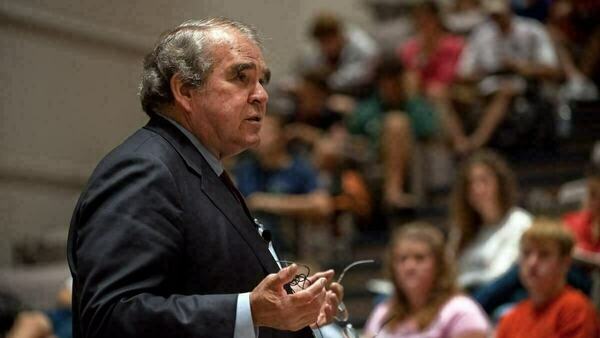Research on Colombian peace accord shows that addressing gender issues strengthens peace agreements
When it comes to peace processes and negotiations, U.N. Women highlights a stark reality: All too often, women remain invisible and excluded. But a new study by University of Notre Dame political scientist Madhav Joshi draws on evidence from Colombia to show that addressing gender-related issues helps peace agreements succeed.
Gender-inclusive peacebuilding: lessons from Colombia
The study, published in Policy Studies Journal, is the first peer-reviewed research that examines Notre Dame’s ongoing work to monitor the Colombian peace accord. It has implications for strengthening peace agreements as well as the women, peace and security agenda that was inspired by a landmark U.N. resolution more than two decades ago.
“An inclusive approach that sees women as changemakers and addresses gender-specific concerns empowers other marginalized groups and cultivates meaningful buy-in from more people,” said Joshi, research professor and associate director of the Peace Accords Matrix, part of the Kroc Institute for International Peace Studies at the University of Notre Dame’s Keough School of Global Affairs. “When you prioritize gender, you end up addressing the broader society’s needs.”
Monitoring progress on Colombia's peace agreement

The study is a natural progression for Notre Dame researchers. Since the 2016 Colombian peace agreement ended 50 years of conflict, the Peace Accords Matrix has had primary responsibility for technical verification and for monitoring the implementation of the agreement through its Barometer Initiative.
In his latest research, Joshi analyzed monthly monitoring data for provisions outlined in the Colombian accord. He examined approximately 70 reforms and programs designed to support more than 570 key stipulations in the agreement.
Joshi found that a higher implementation status for gender-related measures (for instance, identifying obstacles that kept women from voting) was related to the agreement’s overall success rate.
Investing in safeguards for gender provisions
Importantly, Joshi also confirmed that negotiators must invest the resources needed to overcome resistance.
When he examined stipulations in the Colombian agreement, he found that the implementation of gender-specific provisions lagged behind the implementation of gender-neutral ones. This indicates a level of societal resistance to changing norms, Joshi said, and the need for policymakers to invest in safeguards.
“This study highlights that gender measures and women’s mobilization are not sufficient without proper safeguards to ensure their implementation,” Joshi said. “But with the necessary support, they will succeed and strengthen peace agreements. And the resulting quality of peace could be really impactful, particularly for transitioning societies such as Colombia.”
Advancing women, peace and security debates
Joshi said the study provides data and methods that other researchers can draw upon as they build on this work.
“My research will advance women, peace and security debates in peace processes,” Joshi said. “This study will help researchers identify factors that help or hinder women’s inclusion in peacebuilding.”
Joshi’s support team for the study included research assistants Clare Barloon, a 2024 Notre Dame graduate who majored in global affairs and art history, and Grace Sullivan, a sophomore majoring in global affairs and minoring in peace studies and gender studies. Jenna Sapiano, a specialist on women, peace and security and a visiting fellow at the Keough School’s Kroc Institute, provided feedback to help guide the study.
The Peace Accords Matrix Barometer Initiative in Colombia received funding from the U.S. Department of State, Humanity United, the U.N. Multi-Partner Trust Fund and the European Union.
Originally published by at keough.nd.edu on Dec. 20.
Contact: Tracy DeStazio, associate director of media relations, 574-631-9958 or tdestazi@nd.edu
Latest ND NewsWire
- Notre Dame receives $2.5 million gift from Coca-Cola to expand entrepreneurship programs into FIFA World Cup 26 host citiesThe Coca-Cola Company in North America has awarded a $2.5 million gift to the University of Notre Dame’s Urban Poverty and Business Initiative (UPBI). The initiative brings together universities and nonprofit organizations committed to alleviating poverty and helping low-income and underprivileged individuals launch and grow sustainable businesses. The gift will enable UPBI, housed within the University’s Keough School of Global Affairs, to expand its network of partner organizations across the United States and into Canada, including cities that will host the FIFA World Cup 26.
- Notre Dame, Beacon Health System announce new, multiyear research collaborationThe University of Notre Dame and Beacon Health System have announced a new, multiyear research collaboration. Through this agreement, Notre Dame and Beacon will jointly develop collaborative, health-focused research projects that are of interest to both organizations, particularly in the areas of oncology and health data.
- Cardinal Robert McElroy, archbishop of Washington, DC, to speak at Notre Dame Forum event on ‘Healing Our National Dialogue and Political Life’Cardinal Robert McElroy, archbishop of the Archdiocese of Washington, D.C., will join University President Rev. Robert A. Dowd, C.S.C., for a conversation titled “Healing Our National Dialogue and Political Life” at 4 p.m. Friday (Oct. 17) in Room 215/216, McKenna Hall, as part of the 2025-26 Notre Dame Forum on the theme “Cultivating Hope.” This event is free and open to the public.
- ND experts offer insight on ‘Dilexi Te’On Thursday (Oct. 9), Pope Leo XIV issued his first major document, “Dilexi Te” (“I Have Loved You”), addressed to all Christians and divided into five chapters. Below, experts from the University of Notre Dame’s College of Arts and Letters, Keough School of Global Affairs, Institute for Social Concerns and the Institute for Educational Initiatives respond to the document.
- Notre Dame’s Kellogg Institute partners with Vanderbilt University to launch 2025-26 democracy surveyThe University of Notre Dame’s Kellogg Institute for International Studies and Vanderbilt University’s Center for Global Democracy are partnering to advance one of the world’s leading surveys on attitudes toward democracy. Starting in October, the Center for Global Democracy, with support from the Kellogg Institute, will conduct the 2025-26 round of the AmericasBarometer, which tracks public opinion on democracy in 20 countries across the Americas.
- Notre Dame to award 2026 Evangelium Vitae Medal to Wm. David Solomon, founding director of the de Nicola Center for Ethics and CultureThe de Nicola Center for Ethics and Culture at the University of Notre Dame announced that the late Wm. David Solomon, associate professor of philosophy emeritus and founding director of the center, has been named the recipient of the 15th annual Notre Dame Evangelium Vitae Medal, the nation’s most important award for heroes of the pro-life movement. The medal will be presented to Solomon’s family at a special Mass and dinner May 1, 2026, at Notre Dame.













